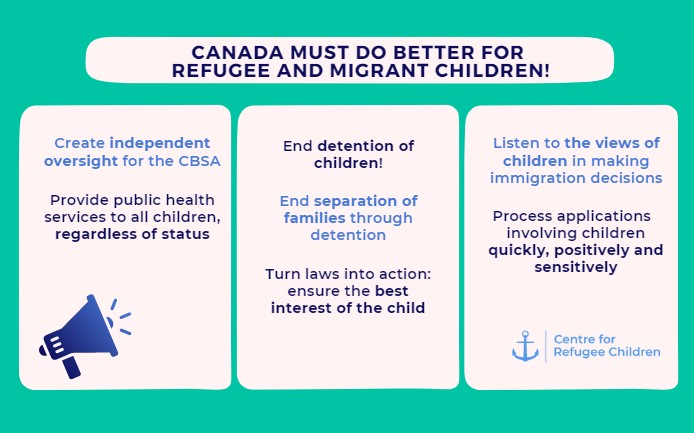CRC AT THE SUPREME COURT OF CANADA

The Centre for Refugee Children, together with Defence for Children International – Canada (DCI-Canada), intervened in a case at the Supreme Court of Canada (Dunmore v. Mehralian) that dealt with how a child’s habitual residence should be determined under Ontario’s Children’s Law Reform Act. CRC and DCI-Canada argued that a child-focused approach should be taken when determining a child’s habitual residence in non-Hague child abduction proceedings, and that the particular realities of refugee and migrant children must be recognized when determining if Ontario has jurisdiction to hear the case.

The hearing was held in December 2024, and on June 20, 2025, the Court released their full decision. In a majority decision, the Court stated that a child’s habitual residence should be “where the child is home” and should not be decided based on where the child’s parents last agreed the child would live. CRC welcomes this decision, and we would like to thank our legal team at Jamal Family Law for ensuring that the circumstances of refugee and migrant children were not overlooked in this important case.
“Children have no control over where their parents litigate. The Supreme Court of Canada has clearly stated what matters in determining habitual residence is where a child is “at home” and their voice is important in deciding what being “at home” means in the jurisdictional analysis. As the 8:1 majority of the Supreme Court of Canada said: ‘The notion of home is a reminder that the court is not in search of legal formalities and must be squarely focused on the child’s life and circumstances when asking where they reside.’”
—Fareen Jamal and Fadwa Yehia, Jamal Family Law
“The Centre for Refugee Children welcomes the Court’s acknowledgement that when defining a child’s habitual residence, the analysis must be sufficiently flexible to take into account the realities of refugee and migrant children. For children who have endured forced migration, children seeking safety and protection in Canada, and children who may have no viable habitual residence to return to, this decision lets them know that their unique circumstances must be recognized.”
—Steve Meagher, Director, Centre for Refugee Children
OUR ADVOCACY PRIORITIES
In addition to providing frontline services, the Centre for Refugee Children is committed to enhancing access to justice for refugee and migrant children through our advocacy work
A REFUGEE SYSTEM THAT WORKS FOR CHILDREN

Refugee children are forced to navigate systems that are designed for adults. Our centre regularly advocates for child-friendly systems
FAMILY REUNIFICATION FOR UNACCOMPANIED CHILD REFUGEES

Children who are accepted as refugees in Canada do not have the right to bring their parents or siblings to Canada.
A ROADMAP TO JUSTICE:
YOUTH-LED, SYSTEMS CHANGE PROJECT

The Centre for Refugee Children has just completed its first 2 years on a youth-led project to make Canada’s immigration system more responsive to the needs of children and youth.
Learn more here.
THE UNITED NATIONS CONVENTION ON THE RIGHTS OF THE CHILD

Canada signed the UNCRC in 1991. How are we doing in fulfilling our commitments?
The UN Committee on the Rights of the Child released a report in June 2022 on how Canada is doing in our commitment to children’s rights. The report included important recommendations to uphold the rights of refugee children:
